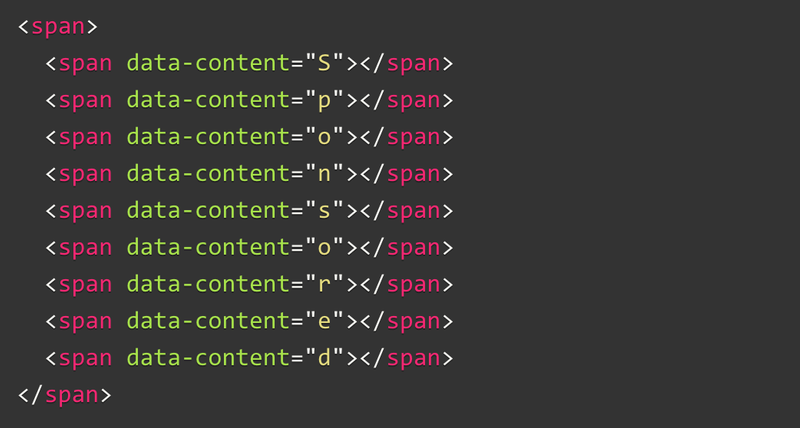Summary: Users should have a right to control what is displayed on their devices. This cannot be accomplished by adblockers alone, it is an uphill battle. Websites must be incentivized. DuckDuckGo needs to adopt ranking factors that incentivize good actors (websites). Brave needs to adopt badges for good UX the way that https looks in the URL bar.
How Facebook Avoids Ad Blockers

Dylan Paulus details the way Facebook successfully thwarts the use of adblockers through simple code obfuscation.
What Facebook does is insidious but merely a response to the non-trivial growth of privacy forward tools like uBlock Origin and Brave. It is a signal that it’s actually hurting them.
Their technique is not insurmountable by adblockers. The intelligence of adblockers has plenty of room to grow, but this is an uphill battle. We can fight ads all day, but companies with business models in direct opposition to adblockers will always build solutions to counteract them.
Users should have a right to control what is displayed on their devices.
Perhaps the solution isn’t fighting head-to-head but instead the eventual adoption of ideas like a User’s Bill of Rights, either through government or by voluntary adoption by businesses with less harmful business models. These ideas can be scaled by privacy-forward tools and businesses.
A web business perspective
Businesses avoid taxation and push regulations to their absolute limit to remain competitive and are sometimes even legally bound to do so to fulfill their duties to shareholders. Likewise, websites will push the use of dark patterns, tracking, and advertising as far as possible to remain competitive. It is systemic and not a battle that any individual business website can wage on its own.
For example, this website forwardly admits the use of tracking via Facebook. We do it to remain competitive, as so much traffic goes through Facebook that our absence from the platform could be catastrophic to the success of the business. This fact is true for many online businesses and cannot be undone simply by the abstention of a single actor. The defiance of a single website gleans no competitive advantage to itself.
Conversely, my business outlines its abstention from the use of dark UX patterns in our Users First Policy. It’s something we can control. A small feat, but at scale something that could have a profound impact on the web. If such policies were incentivized through search engine rank position (SERP) or badges similar to how browsers let you know when a site uses https, the impact could reverse the growth of dark patterns.
Privacy-forward organizations can scale adoption
Companies like DuckDuckGo and Brave can lead the charge. Incentivizing privacy-friendly features is a proven competitive advantage baked into their business models. Both organizations should expand this scope to include the websites they display and send traffic to.
Google cannot compete with good-actor incentivizations such as rewarding websites that don’t use advertising or tracking because it is directly in opposition to their business model.
Ranking factors
Just as Google uses the https ranking factor to incentivize its usage, companies like DuckDuckGo could incentivize sites that use less advertising, less tracking, and less dark patterns.
On the web today, there are few greater business incentives than to boost a site’s search engine rank position (SERP). The world is fighting tooth and nail to ascend the ranks into the most coveted top positions for a given keyword. Why not incentivize good actors?
Browser-based
Imagine this warning appearing as you browse a new website:
This site uses your personal data as part of their business model.
or this one:
This site uses design elements that are known to be psychologically manipulative.
Is this any better than the ubiquity-neutralized GDPR “this site uses cookies” warning? Or is it more akin to the YouTube warnings like “Al Jazeera is funded in whole or in part by the Qatari government”? The former accomplishes little, but the latter perhaps gives you pause. A warning like this that is non-ubiquitous across the web provides users with a true differentiation on which to make judgements.
Conclusion
Can you imagine a web where Facebook and data-mining-heavy websites are effectively delisted from search results? We can cut into their profits and force change through dollars.
A mass exodus from Facebook due to bad business practices is a pipe dream. Online petitions directly to companies like Facebook are ineffective. It is not enough to publicly shame Mark Zuckerberg in a Senate hearing that has no perceivable impact on Facebook’s overall business strategy.
We must incentivize good behavior rather than fight head-to-head against enemies with unlimited resources. We must force a systemic change by demonetizing the systems that stranglehold the internet.
Looking at you Gabriel Weinberg (@yegg), DuckDuckGo (@DuckDuckGo), Brendan Eich (@BrendanEich), Brave Software (@brave).
